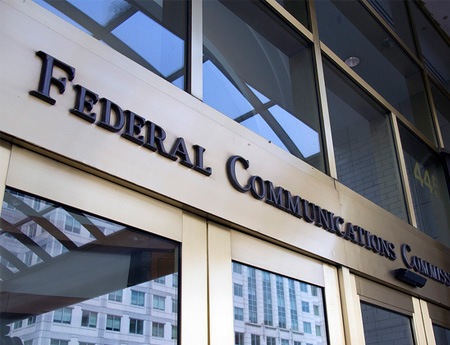FCC Retains Local Media Cross-Ownership Ban

The smarter way to stay on top of broadcasting and cable industry. Sign up below
You are now subscribed
Your newsletter sign-up was successful
The FCC has voted to continue its 41-year-old ban on TV-newspaper same market cross-ownership, except in extreme "failing newspaper" situations, which critics contend will actually speed the demise of publications.
In a partisan 3-2 vote, the commission adopted a proposalthat chairman Tom Wheeler unveiled in June. The FCC's quadrennial media ownership review also maintains a limit of two stations co-owned per market so long as one of them is not among the four top-rated stations. It tightens Joint Sales Agreements among TV stations, in deference to other court directives in May.
The commission had not officially issued the text or detailed information about its decision as of early Friday. Word of the vote began surfacing late Wednesday.
Late Thursday, the National Association of Broadcasters condemned the FCC’s decision, and the Newspaper Association of America called the ruling "completely meaningless” because of its plan to exempt "failed or failing newspapers" from the cross-ownership prohibition.
In the weeks leading up to Wednesday's vote, media executives as well as Republican FCC commissioners Ajit Pai and Michael O'Rielly have called Wheeler's plan outdated and characterized it as not reflecting the accelerating market changes that have put many local newspapers in financial straits.
NAB executive VP Dennis Wharton called the rules the "long-outdated media ownership rules that no longer serve their purpose."
"For an agency that claims to be forward-thinking and focused on the future, when it comes to broadcasting, the FCC still applies analog regulation in the digital age," Wharton said. He archly called the decision a way "to further hasten the great decline of our nation’s newspapers and the quality of journalism as a whole.”
The smarter way to stay on top of broadcasting and cable industry. Sign up below
NAA president/CEO David Chavern characterized the ruling as rejecting a U.S. Court of Appeals determination "more than a decade ago" that an outright ban on cross-ownership is "no longer in the public interest."
"Newspapers continue to be the only industry barred by regulation from investment by owners of local broadcast companies, many who are equally committed to local journalism as the local newspaper," Chavern said. He went on to criticize the FCC's new "exception" to the outright ban for "failed or failing newspaper" as meaningless.
"Requiring newspapers to fail or be close to failing before they can draw much needed investment from broadcasters… will never be pursued given the low barrier entry for news on digital and mobile platforms," Chavern said.
In May, the Third Circuit Court of Appeals chastised the FCC for its delay on the media ownership review, citing that the commission had not performed the quadrennial review since 2006. In response, Wheeler created a fact sheet that is believed to be the basis of this week's vote. That preliminary document said that "existing media ownership rules, with slight modification, remain in the public interest.”
Wheeler's proposal retained rules that would prohibit mergers among the four large broadcast TV networks, ABC, CBS, FOX and NBC.
Contributor Gary Arlen is known for his insights into the convergence of media, telecom, content and technology. Gary was founder/editor/publisher of Interactivity Report, TeleServices Report and other influential newsletters; he was the longtime “curmudgeon” columnist for Multichannel News as well as a regular contributor to AdMap, Washington Technology and Telecommunications Reports. He writes regularly about trends and media/marketing for the Consumer Technology Association's i3 magazine plus several blogs. Gary has taught media-focused courses on the adjunct faculties at George Mason University and American University and has guest-lectured at MIT, Harvard, UCLA, University of Southern California and Northwestern University and at countless media, marketing and technology industry events. As President of Arlen Communications LLC, he has provided analyses about the development of applications and services for entertainment, marketing and e-commerce.

